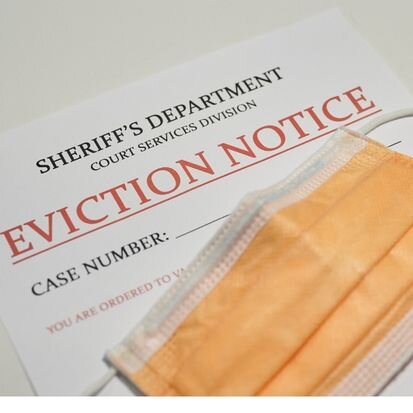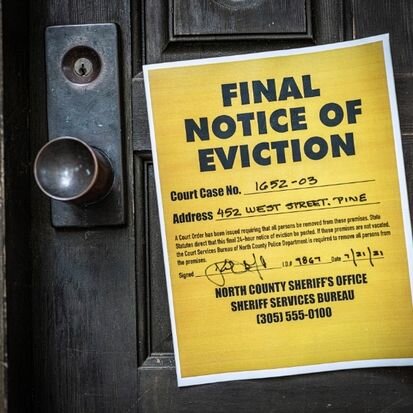
Navigating the eviction process in Irving, TX, can be daunting for landlords and tenants alike. Understanding the timeline is crucial for both parties to manage expectations and prepare accordingly. This step-by-step eviction guide is designed to shed light on how long each phase of the eviction process typically lasts, offering insights into legal requirements and potential delays. Whether you’re a landlord initiating proceedings or a tenant facing eviction, this comprehensive guide provides the essential information to navigate the legal landscape efficiently and effectively. Stay informed about your rights and responsibilities in this critical legal matter. For homeowners looking for a quick and hassle-free property solution, partnering with cash home buyers in Irving can help you sell your house fast without the stress of traditional listings.
Understanding the Eviction Process in Irving, TX

With many deadlines and legal hoops to jump through, eviction proceedings in Irving, TX, may be a real pain. All parties involved, including landlords and tenants, must be familiar with the legal definition of eviction and the steps involved in the process. The procedure is regulated by Texas eviction laws, which guarantee a reasonable equilibrium between the rights of landlords and tenants. It is easier to keep track of everyone’s expectations and duties when you know how long each phase is and what the legal obligations are. In this section, we will delve into the reasons for eviction and outline the necessary procedures, offering a thorough roadmap through this frequently difficult legal process.
What Constitutes a Legal Eviction?
Under Texas eviction rules, there must be a good reason for the eviction to happen in Irving, TX. Usually, a landlord starts the eviction process when a renter doesn’t follow the terms of the lease, like not paying rent or breaking the rules of the property. Landlords must give an eviction notice to the renter to make sure the process stays legal. This notice should explain why the renter is being kicked out and give them the option to fix the problems or leave the property. By doing this, landlords follow Texas laws that require clear communication and giving renters a fair chance to talk about problems before moving forward. When a tenant gets an eviction notice and doesn’t follow through, the landlord can go to court to get the renter kicked out. The court will then decide if there are enough legal reasons to let the tenant go.People who rent in Texas, on the other hand, should know that they have rights that protect them from being evicted unfairly or for no reason. They have the right to fight the move if they think it is illegal. By understanding the laws that govern evictions, both parties can successfully exercise their rights and duties, avoiding any problems and always following the law.
Key Steps in the Eviction Timeline
The eviction timeline in Irving, TX, unfolds through definitive steps, each governed by Texas law to ensure a fair process. Initially, the landlord must serve a written eviction notice, typically allowing the tenant a minimum of three days to vacate or address any lease violations. If the tenant fails to act within this time frame, the landlord can pursue an eviction lawsuit in the local court. Landlords must adhere strictly to this timeline and use legally valid notices to avoid complications or delays. Following the filing, the court will schedule a hearing, where both parties can present their cases. During this phase, tenants can argue their position and present any defenses against the eviction, which could be pivotal in affecting the judge’s decision. If the court rules in favor of the landlord, a writ of possession is issued, granting the landlord legal rights to retake possession of the property after a specified period, typically around five days. This structured timeline ensures both landlords and tenants have adequate opportunity to prepare for each phase, making it indispensable for interested parties to understand these steps clearly. Being informed about this process reduces the chances of missteps and encourages a smoother transition, irrespective of which side of the eviction one is on. For tenants, responding proactively to notices and legal mail from the court can help protect their rights and potentially lengthen the period before eviction. Meanwhile, landlords must follow the court’s rulings precisely to avoid legal repercussions, ensuring the entire eviction process respects both parties’ rights as outlined by Texas eviction laws. If you’re a property owner looking for a simpler way to sell without the hassle of traditional listings or tenant issues, learn more about how our process works to see how Ready House Buyer can help.
Preparing and Serving an Eviction Notice
Initiating an eviction in Irving, TX, necessitates a thorough understanding of the notice process. Serving a legal notice is the first critical step, setting the stage for how the rest of the eviction timeline unfolds. It acts as formal communication, informing tenants of their lease violations and allowing them to rectify or vacate the property. The specifics of notice requirements can heavily impact the direction and effectiveness of the eviction process, making it crucial for landlords to follow Texas law precisely. Moreover, using best practices when delivering these notices ensures compliance and reduces potential conflicts.
Legal Requirements for an Eviction Notice
An eviction notice in Texas must align with specific legal requirements to maintain validity, a pivotal element in the eviction process. Under Texas law, the notice should include a clear statement of the lease violation, whether it’s rent non-payment, property damage, or unauthorized occupants. Fundamentally, landlords provide tenants with a precise and unambiguous account of the breach to avoid procedural missteps that might lead to delays or dismissal of the eviction case in justice court. Furthermore, landlords must ensure the notice grants a minimum period, typically three days, for the tenant to address the breach or vacate the premises. This timeline is critical in adhering to the legal framework established by Texas statutes.
The way the eviction notice is delivered is just as important as the content. If all other methods fail, Texas law allows for many permissible ways to give a tenant notice, such as hand-delivering it, mailing it by certified mail, or posting it inside the main entrance of the rental property. Each approach is lawful, but it must be done correctly for the eviction to stand up in court. Landlords need to keep detailed records of the delivery procedure to show that they followed the rules for giving notice. This will stop renters from saying that they didn’t get proper notice.
Following these notification rules is not just a matter of procedure; it is also the basis for a legally competent eviction process. Not giving a legal eviction notice might stop the whole process, which means more expenditures and tenants staying longer without fixing the lease problems. So, landlords in Irving need to make sure that their eviction notices follow all the rules set by Texas law. This carefulness makes sure that there is a strong case for eviction when it goes to court, protecting both the rights of the tenant and the interests of the landlord. Understanding these regulations also benefits homeowners who are selling a house to a family member, ensuring that property transfers remain legally sound and compliant with state requirements while maintaining family harmony and avoiding potential disputes.
Best Practices for Serving Notices to Tenants
Serving an eviction notice involves more than just adhering to legal requirements; employing best practices enhances the efficacy and fairness of the process. One pivotal practice is maintaining clear and respectful communication, setting a professional tone to mitigate tenant hostility and address lease issues constructively. By ensuring the language in the notice is straightforward and devoid of legalese, landlords foster better tenant understanding of the reasons behind the eviction and their next steps.
Another effective strategy is to plan the timing of the notice delivery. Landlords should consider delivering notices when they can be sure that the tenant is likely to be home, maximizing the chances of direct receipt. This practice also includes using certified mail with a return receipt requested, even when hand delivery seems more convenient, and providing legal proof of both the attempt to notify and the receipt of notice, which is a critical component when facing disputes in justice court.
Also, it can be very helpful to keep a record of all the conversations and efforts to solve problems with the tenant before sending an eviction notice. This paperwork not only backs up the eviction process in the eyes of the court, but it also makes things clear for renters who want to fight the eviction. These records could include any written warnings given to the tenant, notes on conversations, and answers to questions from the tenant. This would help establish a timeline that supports the final decision to evict the tenant.
Lastly, landlords can improve their notice process by talking to a lawyer or a group that knows Texas property and eviction laws. Help from professionals makes sure that all notices follow state law, are thorough enough to survive challenges, and protect tenants’ rights. By using these methods, landlords can make their eviction process more honest, which lowers the chance of court challenges and improves the relationship between landlord and renter, even when things are tough.
The Role of an Eviction Lawsuit in the Process

An eviction lawsuit is a very important part of the eviction process in Irving, TX. It is the official way for landlords to get back their property. After getting an eviction notice, it is very important to file papers in the justice court. Landlords and renters need to know all the details of this action, from filing to the hearing that follows, in order to know their rights and responsibilities. This kind of knowledge makes sure that Texas law is followed and gives the judicial system a way to make fair decisions.
How to File an Eviction Lawsuit
After a tenant in Irving, TX disregards an eviction notice, the formal procedure for filing a lawsuit to remove them begins. The next step for landlords is to get ready to file a lawsuit in the local justice court. At this stage, you should gather all of the relevant paperwork, including the lease, the eviction notice, and any other proof of lease violations. Documentation must be precise and comprehensive to avoid eviction lawsuit delays or dismissals due to inconsistencies. After gathering the necessary paperwork, the landlord can submit it to the court along with the filing fee (which differs by Dallas County jurisdiction) to initiate the lawsuit.
Landlords need to understand the timeline of filing an eviction lawsuit in Texas. Following the filing, the court sets a date for the eviction hearing, usually within a few weeks. This period gives the court time to notify the tenant of the lawsuit, ensuring they have the opportunity to prepare their defense. The justice court uses this time to facilitate a fair and unbiased hearing by allowing both parties to present their sides of the story. This step in the process highlights the importance of initial steps, such as accurately serving the eviction notice, since errors can adversely impact the proceedings.
At this point, landlords often benefit from getting legal advice to help them through the tricky parts, like making sure that everything they do is legal in Texas. A well-thought-out plan can help speed up the case process, avoiding needless delays and possibly saving money on court fees. Tenants should also use this time to learn about their rights and get ready for any defenses that might change the result, such as claims of retaliation or discrimination. Similarly, selling a house with termite damage in Irving, TX requires careful planning, legal awareness, and proactive communication to avoid disputes and ensure a smooth transaction. By taking action, both sides can better handle the complicated legal issues that come up in an eviction case, making the whole process go more smoothly.
What Happens During an Eviction Hearing?
An eviction hearing is a critical juncture where the outcome of an eviction lawsuit is determined. Held in justice court, the hearing provides a platform for landlords and tenants to present their cases. During this session, the landlord must prove that they followed all procedural steps leading up to the lawsuit’s filing, including serving a valid eviction notice and waiting the requisite period as mandated by Texas law. Presenting evidence such as payment records, communication logs with the tenant, and testimony about the lease violations can bolster the landlord’s case for regaining possession of the property.
Tenants have the chance to fight the eviction, give defenses, and explain what happened from their point of view at the eviction hearing. They could say things like that they were evicted unfairly or that the owner made mistakes in the process. During this meeting, the tenant wants to show why the eviction might not be legal. Tenants and landlords can sometimes work out a solution together, with the renter agreeing to do things like pay late rent to avoid being evicted.
At an eviction meeting, the court usually makes a decision quickly, soon after the presentations are over. If the judge rules in favor of the landlord, the court issues a writ of possession, which gives the landlord the legal right to take back the property from the tenant after a short grace time, usually less than a week. This paper is very important for landlords because it officially backs up their right to get their property back. If the tenant wins, on the other hand, the court may throw out the case and let them stay in the house. The court’s decision must be respected by both sides. Landlords must carefully carry out the writ of possession, and tenants must know their rights and responsibilities after the decision. The result of the hearing depends on how well and clearly the evidence is presented. This shows how important it is for both landlords and tenants to be well-prepared.
Navigating the Eviction Timeline Efficiently

The eviction process in Irving, TX, can be complex, with specific steps and timelines to which landlords and tenants must adhere. Effective navigation of this timeline is crucial to avoid legal pitfalls and ensure a fair resolution. Understanding the intricacies involved can help both parties manage their expectations and responsibilities from the initial notice to the final court hearing. This section will explore practical tips tailored to landlords and tenants in Irving, TX, helping them handle the eviction process smoothly while staying compliant with Texas laws.
Tips for Landlords and Tenants in Irving, TX
For landlords in Irving, TX, understanding the eviction process from start to finish is essential for managing rental properties effectively. One of the first steps is to familiarize yourself with the Texas Property Code, which outlines the legal framework for initiating an eviction. This includes knowing when and how to serve an eviction notice. Providing this notice with clear reasons for eviction, such as lease violations or delinquent rent payments, is vital. Ensuring that these reasons are documented can prevent disputes during the legal process. Utilizing certified mail or hand delivery for notices is a recommended practice to establish proof of notice, which can be critical if the case goes to court.
In the event that the tenant does not comply with the notice, the landlord should be ready to initiate the eviction process. As part of this getting ready process, gather any relevant paperwork, such as the original lease, any correspondence, and proof of any lease violations. All procedures must be carried out in accordance with the timetable for eviction as set forth by law in Texas. To avoid setbacks or dismissals during court procedures, landlords should think about getting legal advice to make sure all procedural criteria are satisfied. The time and money spent on protracted court battles can be better spent with a case that is well-prepared. If managing an investment property becomes too demanding, consider working with we buy houses in Garland specialists who offer fair cash deals and fast closings to simplify the process.
It is very important for renters to know their rights under Texas law, especially if they are facing eviction. Learn about the most common reasons for eviction and the legal arguments that can be used against them. With this information, you can figure out if the owner made a mistake or if there are good reasons to fight the eviction in court. Keeping the lines of conversation open with your landlord can sometimes lead to a peaceful solution, which could mean you don’t have to go through an eviction lawsuit at all. If you get a notice to vacate, you should quickly think about your choices, such as negotiating with the landlord or talking to a housing advocate or lawyer. By being proactive, you can increase your chances of keeping your rental or getting better terms for leaving the property.
Also, renters should keep detailed records of all conversations they have with their landlord. This paperwork could be very important if you have to defend your case in court. It also helps your case because it shows that you are ready to follow the lease terms or deal with alleged lease violations. It’s also important to go to all court hearings about the eviction and present any proof or defense you have that the process is being done properly. Being involved strengthens your case and helps make sure you get a fair review.
Ultimately, navigating the eviction process necessitates an approach for landlords and tenants. By understanding the legal obligations and taking strategic actions, both parties can handle the process efficiently, minimizing disruptions and protecting their respective rights. This knowledge empowers them to manage current situations and prevent future conflicts, fostering a more harmonious landlord-tenant relationship.
Landlords and tenants can better manage the eviction procedure in Irving, TX, by understanding the timeline. The process usually takes weeks to months, depending on things like notice periods and court hearings. But following local regulations and keeping lines of communication open helps speed up this process while making sure it is fair and legal. Landlords need to keep good records of everything they do, and tenants need to know their rights to avoid possible problems. In Irving, the best way to handle the eviction process is to stay informed and ready. If you’re dealing with a challenging tenant situation or considering selling your property fast, don’t hesitate to reach out to us for professional guidance and support.
Helpful Irving, TX Blog Articles
- How Long Does an Eviction Process Take in Irving, TX
- Selling a House with Termite Damage in Irving, TX
- Sell House with Water Damage in Irving, TX
- Selling a House to a Family Member in Irving, TX?
- How to Sell a Fixer Upper House in Irving, TX
- Can I Sell Half of My House in Irving, TX?
- Can I Sell My House in Irving, TX, Right After I Buy It?
- Can You Sell House with Tenants in Irving, TX?

